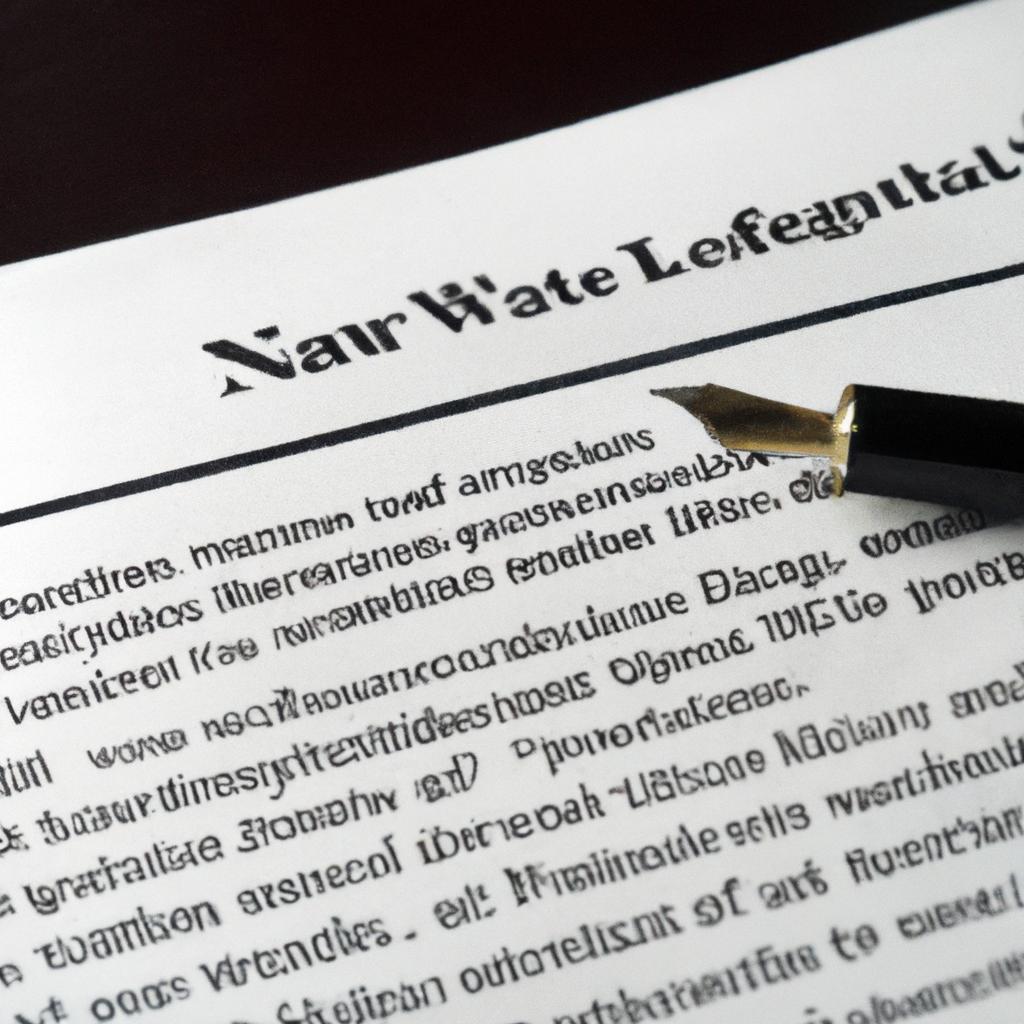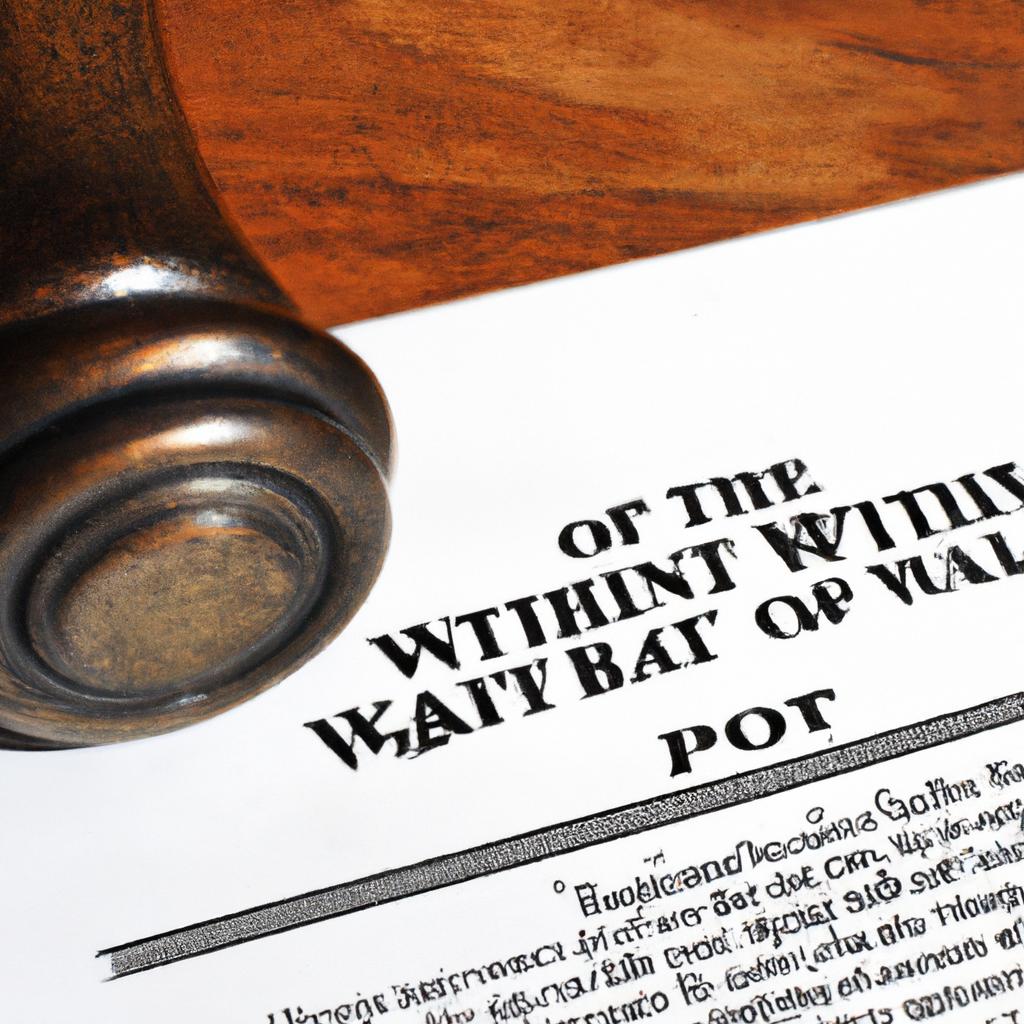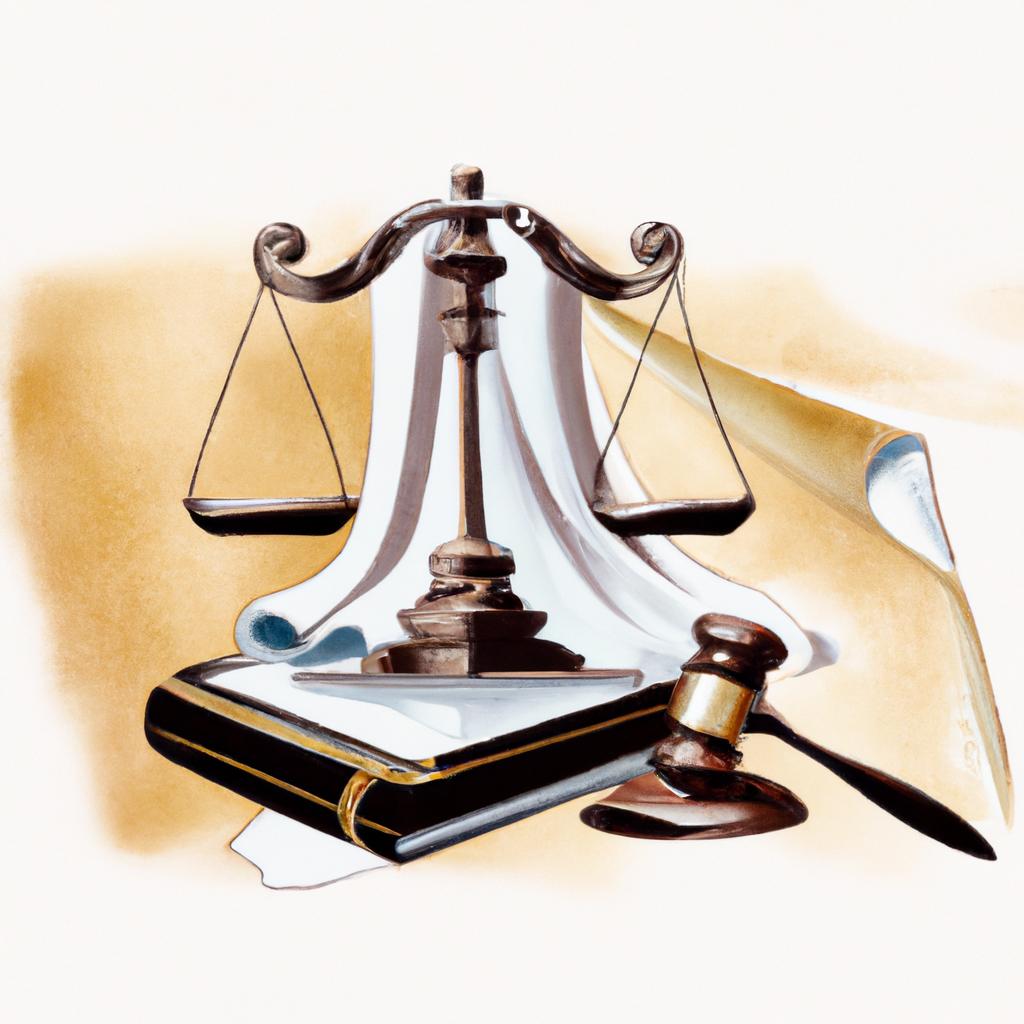In the intricate world of estate planning, one crucial step is the notarization of wills. A notary public plays a pivotal role in validating the authenticity of these legal documents, ensuring that the wishes of the testator are carried out as intended. But who exactly has the authority to notarize wills? In this article, we will delve into the qualifications and responsibilities of those entrusted with this important task, shedding light on the individuals who bear the legal stamp of approval. Join us as we explore the intricacies of notarization in the realm of estate planning with Morgan Legal Group, a trusted name in New York City’s legal landscape.
Qualifications for Notarizing Wills
In order to notarize wills, there are certain qualifications that must be met. Firstly, the individual must be a commissioned Notary Public in the state where the will is being notarized. This means they have undergone the necessary training and background checks to be able to perform notarial acts.
Secondly, the notary must be impartial and have no financial interest in the will being notarized. This ensures that the notarization process is done with integrity and fairness. Additionally, the notary must verify the identity of the person signing the will and ensure they are signing it voluntarily. These qualifications are essential to uphold the legality and validity of the notarization process for wills.
| Qualification Requirements |
|---|
| Commissioned Notary Public |
| Impartiality |
| Verification of Identity |

Importance of Choosing a Qualified Notary Public
When it comes to notarizing wills, it is crucial to choose a qualified notary public to ensure that the process is done correctly and legally binding. A qualified notary public has the knowledge and expertise to properly execute the notarization of wills, which is an essential step in estate planning. By choosing a qualified notary public, individuals can have peace of mind knowing that their wills are legally valid and will be upheld in probate court.
Qualified notary publics are familiar with the laws and regulations surrounding the notarization of wills, and they have the necessary training to handle sensitive legal documents. By choosing a qualified notary public, individuals can avoid any potential challenges or disputes that may arise in the future regarding the validity of their wills. It is important to prioritize the selection of a qualified notary public when notarizing wills to ensure that the wishes of the individual are carried out as intended.

Legal Requirements for Notarizing Wills in New York
In the state of New York, there are specific legal requirements for notarizing wills to ensure their validity and enforceability. It is essential to understand who is authorized to notarize a will in New York to avoid any potential challenges or disputes in the future.
In New York, only a licensed attorney or a New York State resident who is appointed as a notary public by the Secretary of State is legally allowed to notarize a will. Additionally, the notary public must be physically present during the signing of the will and must verify the identity of the testator (the person making the will) and witnesses. It is crucial to adhere to these legal requirements to ensure the will is properly executed and can be admitted to probate without any issues.

Benefits of Working with an Experienced Notary Public for Wills
When it comes to notarizing wills, working with an experienced notary public can offer numerous benefits to ensure the validity and accuracy of your important legal documents. An experienced notary public is well-versed in the specific requirements and regulations surrounding wills, providing expertise and guidance throughout the notarization process.
By working with an experienced notary public for wills, you can have peace of mind knowing that your documents have been properly notarized to stand up in court. Additionally, an experienced notary public can offer valuable insights and advice on best practices for estate planning, helping you navigate the complexities of wills with confidence.
Q&A
Q: Who can notarize wills?
A: Notaries public, attorneys, licensed paralegals, and certain court officials are typically authorized to notarize wills.
Q: Can a family member notarize a will?
A: In most cases, it is not recommended for a family member to notarize a will. It is best to use a neutral third party to avoid any potential conflicts of interest.
Q: What is the role of a notary in the will-making process?
A: A notary’s role is to verify the identity of the person signing the will, ensure they are of sound mind and not under duress, and witness the signing of the document.
Q: Are there any specific requirements for who can notarize a will?
A: Each jurisdiction may have its own requirements for who can notarize a will, so it is important to check with the local laws and regulations.
Q: Can a notarized will be contested in court?
A: While a notarized will is generally considered valid and legally binding, it can still be contested in court if there are grounds for challenging its validity, such as fraud or undue influence.
To Wrap It Up
In conclusion, when it comes to notarizing wills, it is important to trust the task to a professional who is authorized to perform such duties. Whether it be a lawyer, notary public, or another qualified individual, ensuring that your will is properly notarized is crucial in guaranteeing its validity and authenticity. So, next time you’re considering who to turn to for notarizing your will, remember to choose wisely and entrust this important task to the right person. Your future self and loved ones will surely thank you for it.
 In today’s society, it is important to have all legal documents properly executed and notarized to ensure their validity and authenticity. This is especially true for Last Will and Testaments, also known as wills. Notarizing a will adds an extra layer of protection and ensures that the document is legally binding and cannot be easily disputed. However, not many people are aware of the process and may find themselves wondering, “who notarizes wills?” In this article, we will delve into the world of notarizing wills and provide you with all the information you need to know.
In today’s society, it is important to have all legal documents properly executed and notarized to ensure their validity and authenticity. This is especially true for Last Will and Testaments, also known as wills. Notarizing a will adds an extra layer of protection and ensures that the document is legally binding and cannot be easily disputed. However, not many people are aware of the process and may find themselves wondering, “who notarizes wills?” In this article, we will delve into the world of notarizing wills and provide you with all the information you need to know.
Before we dive into the topic, let’s first define what a notary public is. A notary public is a public official who is authorized by the government to verify and authenticate legal documents, administer oaths, and witness signatures. They play a crucial role in the legal system and ensure that documents are legitimate and free from fraud. In the United States, each state has its own laws and regulations for notaries, so it is important to know the specific rules in your state.
Now, let’s explore the question at hand, “who notarizes wills?” In almost all states, the answer is a notary public. You can find a notary public in many places such as law offices, banks, insurance agencies, post offices, and even some libraries. A notary public must be present and witness the signing of a will in order to notarize it. They will also verify the identities of the individuals signing the will and ensure that they are of sound mind and not under duress. After the document is signed, the notary public will then attach their official seal and signature, certifying the document as notarized.
In some states, there may be additional requirements for notarizing wills. For example, in Florida, two witnesses are required to also be present during the signing of the will in addition to the notary. These witnesses must also sign the will in the presence of the notary public. It is important to research the specific laws in your state to ensure that your will is properly notarized and valid.
Aside from the notary public, there are also other professionals who can notarize wills, such as attorneys or paralegals. These professionals may also have extensive knowledge in estate planning and can provide valuable guidance and advice in creating a will. However, keep in mind that their services may come with a higher cost compared to a traditional notary public.
Now that we have discussed who can notarize wills, let’s explore the benefits of having a will notarized. First and foremost, notarizing a will adds a layer of security and credibility to the document. As mentioned earlier, the notary public verifies the identities of the individuals signing the will and ensures that they are signing it of their own free will. This can help prevent disputes and challenges to the validity of the will in the future. Notarizing a will can also speed up the probate process and make it easier for your loved ones to access your assets and follow your final wishes.
In addition, notarized wills hold up well in court and are less likely to be questioned or rejected. This can save your loved ones from unnecessary stress and legal fees. Another benefit of notarizing a will is that it creates a paper trail and proof of the document’s existence. In case the original will is lost or destroyed, a notarized copy can be used as a replacement.
When it comes to practical tips for notarizing a will, the first and most important step is to consult with an attorney or estate planning professional. They can guide you through the process and ensure that all legal requirements are met. It is also important to carefully review and update your will periodically to reflect any changes in your life. Lastly, make sure to keep your will in a safe and accessible place where your loved ones can easily find it in the event of your passing.
Ultimately, notarizing a will is an important step in securing your assets and ensuring that your final wishes are carried out. It adds an additional layer of protection and can save your loved ones from potential legal battles and challenges. With the help of a notary public or other professionals, you can have peace of mind knowing that your will is properly executed and valid.
In conclusion, the answer to the question “who notarizes wills?” is a notary public. They play a crucial role in ensuring the authenticity and validity of legal documents such as wills. Notarizing a will can provide numerous benefits and it is important to consult with professionals and keep the document updated. By taking the necessary steps in notarizing a will, you can have peace of mind knowing that your final wishes will be carried out as intended.









